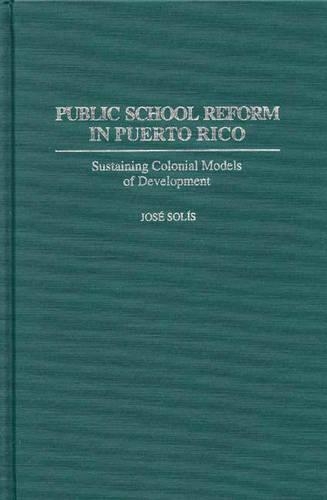
Public School Reform in Puerto Rico: Sustaining Colonial Models of Development
(Hardback)
Publishing Details
Public School Reform in Puerto Rico: Sustaining Colonial Models of Development
By (Author) Jose Solis
Bloomsbury Publishing PLC
Praeger Publishers Inc
21st April 1994
United States
Classifications
Tertiary Education
Non Fiction
Schools and pre-schools
Development studies
Colonialism and imperialism
National liberation and independence
Cultural studies
371.01097295
Physical Properties
Hardback
184
Description
Puerto Rico's colonial history under the United States has shaped the character of development and education in that territory. In 1898, when the United States invaded Puerto Rico, the language, culture, and development of the latter was arrested by a colonialist mandate involving the social, political, and economic spheres. The role that the development of a mass public school system would play in sustaining colonial relationships was seen as paramount. Since then the developments in public school reform policies have contributed to and have been defined and determined within the linguistic and ideological framework of the colonizers' conceptualization of development for Puerto Rico. If development is more than growth, and if it includes self-determination and cultural expression within the context of political and economic arrangements, then Puerto Rico remains a classic example of colonialism 500 years after Columbus.
Reviews
Excellent photgraphs, and extensive bibliography, and a useful index make this a fine reference work for undergraduate, graduate, and research collections.-Choice
"Excellent photgraphs, and extensive bibliography, and a useful index make this a fine reference work for undergraduate, graduate, and research collections."-Choice
Author Bio
JOSE SOLIS is Assistant Professor of Education at DePaul University in Chicago. He was born and raised in Puerto Rico and has taught in public and private schools as well as at the university level. He has written numerous articles and taught education in Puerto Rico.
